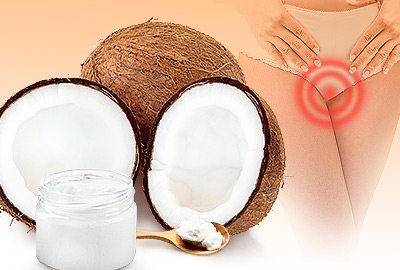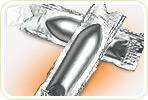Although vaginal dryness occurs in around 17 percent of women during their reproductive years, it is particularly common during menopause and postmenopause, with over half of women experiencing it post-fertility.1 While many women feel embarrassed to discuss this issue, there are solutions available to prevent vaginal dryness from obstructing the intimacy you share with your partner. Discover them below.
Before Sex
Communicate with your partner about your symptom and explain its effects on your attitude toward sex. Choose a moment to discuss the symptom outside of intercourse to prevent your partner from taking it personally and to ensure their maximum support.
Keep in mind that it is important to address this symptom with the seriousness that you would any menopause symptom. Your intimate life is a crucial factor of your well-being, the relationship with your partner, and your own feelings of femininity and self-confidence.
Consider taking herbal supplements as well, which may relieve vaginal discomforts during menopause as they tackle their root cause, hormonal imbalance. They include phytoestrogenic or hormone-regulating options.
During Sex
Finding solutions for vaginal dryness during sex may include the following approaches.
Arousal
Arousal causes increased blood circulation to the genitals, which stimulates the vaginal tissues to secrete lubrication and reduce dryness.
During arousal, the vagina will also widen to accommodate penetration, which will minimalize pain or discomfort for both partners.
Foreplay - kissing, caressing, oral stimulation, massaging, etc. - is the most effective means of achieving arousal, so pick a moment to have sex when you can indulge in foreplay without interruptions or time-restriction in order to increase enjoyment and allow your body to work naturally against dryness.
Lubricants
Furthermore, instant relief from vaginal dryness immediately before penetration can be achieved by applying a water-based lubricant to the genitals.
Not only will water-based lubricants moisturize the vagina and ease discomfort for both partners, but they are less likely to cause vaginal irritation - in comparison to their oil counterparts - and are safe to use with condoms.
After Sex
Also, there are some factors to consider afterwards, including:
Vaginal cleaning products
Some woman make a habit of vaginal douching to wash the vagina after having sex. This is a process wherein the vagina is internally rinsed with water or a solution.
Despite its popularity, douching disturbs the vagina's natural cleansing process and upsets the internal balance of beneficial yeast and bacteria, often causing infections or severe dryness.
Similarly, harsh soaps or fragranced body washes used externally are also likely to aggravate vaginal dryness.
Limit the discomfort of vaginal dryness and use a soap-free cleanser or lukewarm water. This will avoid aggravating the condition.
Treatment
If the condition persists, you may wish to consult a doctor. Though this may seem daunting, remember that vaginal dryness is a common condition; a doctor's role is to be discreet, and you can request a female gynecologist if this makes you more comfortable.
Many menopausal women consider further natural and effective vaginal dryness treatments that focus on lifestyle changes alongside the use of alternative medicine proven to bring results.
Conclusions
Sex is a healthy expression of intimacy, a physical way of sharing closeness with your partner and demonstrating mutual affection for one another. Both you and your partner deserve to enjoy a fulfilling sex life without vaginal dryness hindering the delights that sex can bring. By instilling aforementioned solutions for vaginal dryness before, during, and after sex, you can take your sexual health to the next levels far into your twilight years.
Sources
- Mayo Clinic. (2018). Vaginal dryness after menopause: How to treat it? Retrieved November 21, 2019, from https://www.mayoclinic.org/vaginal-dryness-after-menopause/expert-answers/faq-20115086
- MedlinePlus. (n.d.). Vaginal dryness alternative treatments. Retrieved on November 21, 2019, from http://www.nlm.nih.gov/medlineplus/ency/article/002142.htm
- NHS. (2019). Female sexual problems. Retrieved November 21, 2019, from https://www.nhs.uk/live-well/sexual-health/female-sexual-problems/
- The North American Menopause Society. (n.d). Vaginal Dryness. Retrieved on November 21, 2019, from http://www.menopause.org/docs/default-source/for-women/mndryness.pdf?sfvrsn=f093c698_8
Footnotes:
- Women's Health Concern. (2017). Vaginal dryness. Retrieved November 21, 2019, from https://www.womens-health-concern.org/help-and-advice/factsheets/vaginal-dryness/




